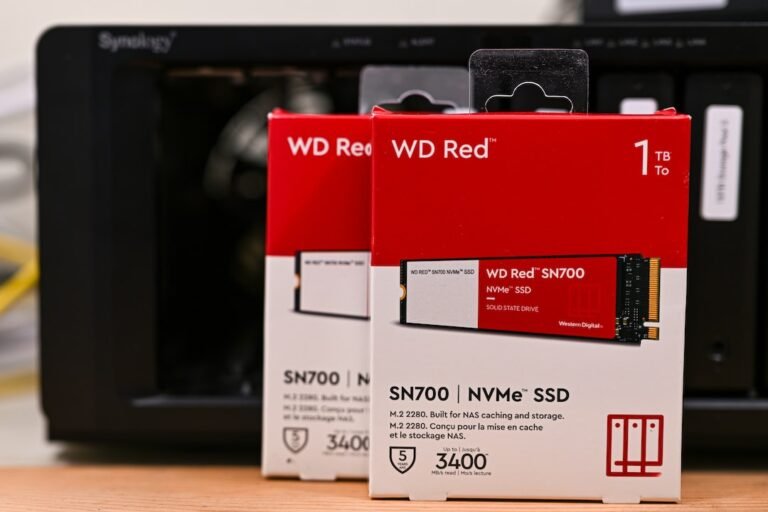Introduction
In today’s digital age, where privacy is a growing concern, protecting our personal information has become more important than ever. One area where privacy can often be compromised is our home network, specifically through the use of routers. But fear not! There is a solution to enhance your online security and regain control over your privacy. It’s called open-source router firmware.
In this article, we will explore the world of open-source router firmware for privacy. We will discuss what it is, how it works, and the benefits it offers. So, let’s dive in and discover how open-source router firmware can safeguard your personal information and provide peace of mind.
What is Open Source Router Firmware?
Open-source router firmware is software that replaces the default firmware on your router. It is developed and maintained by a community of volunteers who work collaboratively to improve router performance, security, and privacy. Unlike closed-source firmware provided by router manufacturers, open-source firmware is transparent and customizable. This means that anyone can inspect, modify, and distribute the code to suit their specific needs.
Popular open-source firmware options include DD-WRT, OpenWrt, and Tomato. These firmware alternatives are compatible with a wide range of routers, allowing you to upgrade your device without purchasing a new one.
How Does Open Source Router Firmware Protect Your Privacy?
Open-source router firmware prioritizes privacy by offering several key features:
1. Enhanced Security
Open-source firmware is regularly updated to fix vulnerabilities and address emerging threats. The dedicated community of developers ensures that security patches are promptly released, making it harder for hackers to exploit your network.
2. Advanced Encryption
Many open-source firmware options support secure VPN connections, allowing you to encrypt your internet traffic. This feature is especially useful when accessing sensitive information, such as online banking or remote work, as it safeguards your data from prying eyes.
3. Granular Control
Open-source firmware provides greater control over your network settings. You can fine-tune security options, manage bandwidth allocation, and customize firewall rules to suit your specific needs. This allows you to tailor your network to your privacy requirements and protect yourself from potential threats.
4. Ad Blocking
Open-source firmware often includes built-in ad-blocking capabilities, blocking unwanted ads and trackers at the network level. This not only improves browsing experience but also helps protect your privacy by preventing online tracking.
Benefits of Open Source Router Firmware
Using open-source router firmware has a multitude of benefits that go beyond privacy protection:
1. Flexibility
Open-source firmware offers a wide range of features and customizations that are not available in standard router firmware. From advanced QoS settings to hotspot functionality, open-source firmware allows you to transform your router into a versatile networking device tailored to your specific needs.
2. Stability and Performance
Open-source firmware is designed to provide stability and optimize your router’s performance. With regular updates, bug fixes, and optimization tweaks, your network will run smoothly and efficiently.
3. Community Support
The open-source community behind popular router firmware options is known for its strong support. Online forums, wikis, and user guides provide a wealth of resources to troubleshoot issues, configure settings, and get the most out of your router.
4. Extend the Lifespan of Your Router
Upgrading to open-source firmware can breathe new life into older routers, extending their usability and functionality. Instead of replacing a perfectly functional device, you can revitalize it and enjoy the benefits of modern router features without breaking the bank.
Conclusion
Open-source router firmware offers a compelling solution for users seeking enhanced privacy and control over their home network. By replacing the default firmware on your router with open-source alternatives like DD-WRT, OpenWrt, or Tomato, you gain access to a wealth of features and customization options. These include advanced security measures, encryption capabilities, granular control, and ad-blocking features.
Additionally, open-source firmware provides flexibility, stability, and community support, making it an attractive option for tech-savvy individuals who value their privacy and want to optimize their network performance.
So, why not take the first step towards a more secure and private home network? Explore the world of open-source router firmware and experience the benefits firsthand.
FAQ
Q: How do I set up a home network with open-source router firmware?
A: Setting up a home network with open-source router firmware is relatively straightforward. Check out our comprehensive guide on home network setup for detailed step-by-step instructions.
Q: What should I do if I encounter issues with my router after installing open-source firmware?
A: If you experience any issues with your router after installing open-source firmware, don’t panic. Visit our troubleshooting guide on router troubleshooting for common problems and solutions.
Q: Can I use open-source router firmware for gaming?
A: Absolutely! Open-source router firmware provides various features that can enhance your gaming experience, such as Quality of Service (QoS) settings. Check out our dedicated guide on gaming router buying guide for more information.
Q: Are mesh Wi-Fi systems compatible with open-source router firmware?
A: Yes, many mesh Wi-Fi systems are compatible with open-source router firmware. However, compatibility may vary depending on the specific mesh system and firmware option. Consult the documentation provided by the open-source firmware community for more information.
Q: Are there any routers specifically designed for privacy and open-source firmware?
A: While there are no routers explicitly designed for privacy and open-source firmware, certain router models are known for their compatibility and community support. It’s advisable to research router models that are compatible with open-source firmware before making a purchase decision.
Further Reading
For more in-depth information and resources on routers, privacy, and network security, check out the following websites:
| Website | Description |
|---|---|
| privacytools.io | A comprehensive guide to privacy-enhancing tools and services, including router firmware options. |
| eff.org | The Electronic Frontier Foundation offers guidance on privacy, security, and digital rights advocacy. |
Remember, staying informed is the key to protecting your privacy and ensuring a secure home network. Stay curious, explore the possibilities, and make informed choices when it comes to your online security.




